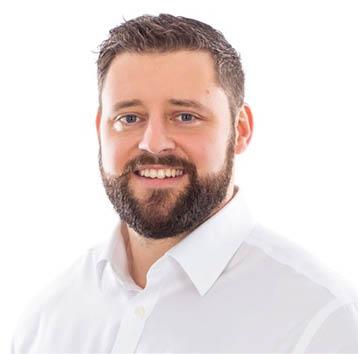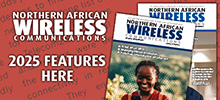10 February 2025

David Evans, Head of Global Asset Recovery and Services, TXO
Reduce, reuse, recycle: these are words to live by. Reduce talks about cutting down on what you manufacture for use, thereby reducing the carbon footprint. Reusing assets that have already been manufactured is another way to minimise carbon emissions, reducing the need for more base materials or residual metals to be extracted from the Earth. And, if there is no reuse option for an asset that was built for that specific purpose, there’s recycling - taking the materials back to be reused in manufacturing, to produce another asset.
Our founder saw a gap in the market 21 years ago; he bought lots of spare telecommunications parts from vendors like Ericsson and stored them in his garage. In 2005, of course, Hurricane Katrina hit, and communications infrastructure took huge amounts of damage. He sold all this equipment to the US market, made a small fortune, and founded TXO on the principle of equipment reuse.
The COVID-19 pandemic has had a massive influence on the green market in recent years. During that time, operators bought surplus stock, and manufacturing slowed to a standstill in some regions. In 2024, some of that pre-ordered and paid for stock is now finally being delivered. But it’s of no use to the operators, it’s been written off. That surplus provides us with an opportunity to repurpose the parts, to ship them to other parts of the world like Africa where they’re very much needed – a much better solution than leaving it to sit and gather dust.
The green economy
Africa’s fibre networks are their legacy networks and are typically not supported by original equipment manufacturers (OEMs). There comes a time when every network reaches end of life support, and then the operator must choose what to do next. Typically, this results in the decision to upgrade – whether it’s needed (or affordable) or not. When the network is upgraded, or indeed when a big merger takes place, a huge amount of equipment – that works perfectly well – becomes available. Those networks are becoming one of our largest sources of equipment, particularly for the European market, where operators are working to maintain the types of networks that Africa is instead choosing to upgrade.
The drive for sustainability today in Africa is not on par with that of Europe. There’s less focus on carbon emissions and other environmental challenges. However, the market is evolving, and in time, we believe Africa will shift from these rapid upgrade projects to network extension and maintenance projects instead. Some of the larger operators are already making commitments for reuse; Orange recently committed to 15% equipment reuse for their networks going forwards to demonstrate the importance of sustainability.
In fact, around 20% of Africa’s operators are reusing equipment now. They stand to benefit from around 80% savings on costs compared with buying new, as well as taking back control of duty costs – a win for operators and for the environment.
However, there are two aspects of the circular economy to consider: you either feed it, or you consume from it. For example, there’s a large Central European operator that is very pro circular economy, who speaks about generating revenue, being sustainable, and enabling operators, etc. When we asked what spares they need to maintain their network, they said that they would not utilise used equipment due to trust issues; customers believed that used equipment would result in a lower quality network. This isn’t true at all thanks to stringent quality control practices and warranties, but it’s a challenging mindset to change.
The greater good
Our core business model is that we will resell what you don’t need to generate the revenue for the parts you do need. That cost model in Africa is fantastic, but – as evidenced by our Central European colleagues - it’s important to ensure that the parts are what they should be, and to maintain stringent standards for quality control with extensive testing.
It’s a sad fact that, even in 2024, many of Africa’s schools, healthcare providers, educational institutions, etc. cannot take part in the digital economy, and do not benefit from the internet, because the state-of-the-art equipment required for connectivity is too expensive.
Thus, the potential for local businesses, schools, and hospitals, for example, to use secondary equipment to provide services in remote and rural locations is huge. If the savings generated by reusing equipment are actually passed on – and that’s a big if in some cases – it could significantly reduce the digital divide and provide greater opportunities for the digitally disadvantaged.
The future is circular
We strongly believe in the local recycling of components and materials - we call that urban mining. One of our German businesses is actively taking apart a copper installation that has been de-powered. We’re on our 200th ton of copper cable recovered from the site, and we will use that copper locally. By doing that, we double the carbon emission saving compared with reusing elsewhere.
Repair is really important to both the global and African markets: especially given that OEM support will disappear soon amidst the exciting new 5G developments. We’re expecting as a result that we’ll be receiving many requests to help maintain the networks.
New technologies will prove a boon for facility maintenance. One of the key advancements for telecommunications tower structures is the use of AI for predictive maintenance. Before this, engineers were replacing all the parts in a particular unit due to a single part fault – an unsustainable waste! Now, AI will provide a broader picture of what fails, when, and why. With it, engineers are now removing and replacing individual parts, preventing costly network failure. However, we’re finding that some of these parts have another year or two of lifespan, so this is inducing a huge new cost for operators. For the circular economy, it’s a bit of a double-edged sword – but one that keeps the networks up, and at least reduces the number of parts going to waste.






